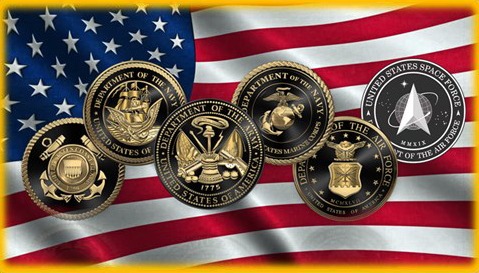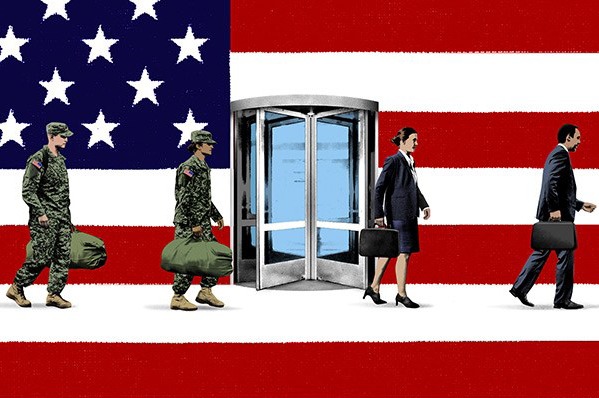
- Recipes4Resumes
- Military – Transition Resume Package
Military – Transition Resume Package
Military - Transition Resume Package
Your next Career’s Success story starts with a Military Transition Resume created to help you stand out in today’s competitive job market.

My Professional Resume writer…
My professional Resume writer took the time to gather my work experience and explained the approach to writing a descriptive Resume.
The video clips helped me gain a better understanding of the process and the expected results, while updating and highlighting my skills.
An excellent job…
Making my Resume look good, wasn’t an easy task.
I may have spent many long years working, but I still lack confidence in my abilities, especially when I am thinking of changing directions in my career.
Thank you, again for your services, as I could have never of done this on my own.
Military Transition Resume
Having a strong Resume is a critical part of transitioning from the military to employment in the private sector with a civilian company. This is because having a clear Resume that reflects your dedication to your past roles and the skills you developed in the military may help you secure a civilian job that interests you and supports your life and career goals. Since many military jobs involve specialized knowledge, the key to writing a compelling military Resume for a civilian job is often using the correct terminology.
A military transition resume is a document that highlights the unique qualifications, experience and education that you received while in the military. As with a traditional work resume, we highlight the specific skills related to the job you want to showcase and your specialized abilities in the this field. We create your Military Resume by describing the transferable skills you developed while on duty into related civilian skills and qualifications.
Remembering to leave out military jargon is an important step in your Transition Resume. It is important to use language that's clear to hiring managers who may not have a background in military terms. For example, you may leave in technical terms that relate to your job duties, but leave out acronyms and other casual phrases that civilians may not know.



Keys to Writing a ((Military Transition Resume
Creating a Resume that includes
your Military Experience.
? 1. Determine the focus of your post-military career path
Focusing on the type of job you're interested in applying for before you write your Resume can help you determine which skills and experience points to feature. Since former military members can pursue various types of jobs as civilians, it can be common to have a few different Resumes to highlight specific skill sets. For example, if you have military training in the medical field and also in administration, you might create one Resume to showcase your medical skills and experience and another to focus on administrative duties.
? 2. Make a list of your military duties to determine they are relevant
Once you know what type of civilian job you want, think about all your duties as a veteran and make a comprehensive list of your accomplishments. At this step, you can use military terminology if it helps you make the list. Once you have the list, evaluate which skills to highlight on your resume based on how relevant they are to your next career. Many services offer assistance with identifying skills for members transitioning out of the services. You can also think of how you used your training to illustrate similarities in your experience and roles you want.
For example, if you were an infantry soldier in the Army, you may have learned how to assess situations and make quick decisions.
These skills are closely related to jobs in security, law enforcement, or supervisory roles.
If you received training as an information officer, you may know about systems or networks closely related to civilian networks and
servers. Additionally, you may have experience with specific types of IT equipment.
If you were an aircraft mechanic, you might know how to troubleshoot issues and find solutions. You may also have experience with
needs assessment, project management and technical repair.
? 3. Highlight your military skills
While you were in the military, you may have developed and honed your soft skills like communication, leadership, management skills and attention to detail. List these skills in your skills section and incorporate them throughout the accomplishments in your work experience section to showcase yourself as a well-rounded candidate. You can also add industry-specific skills that may help you secure a specialized position. For example, if you have a background as a medic in the military, you might add skills like wound care and first aid to your resume.
? 4. Relevant training or education received
After discussing your previous job duties and showcasing how they relate to the career you're pursuing, add information about the
college you attended. If you want to list specialized training, make sure it's relevant to the career path you're pursuing. Be sure to
translate your military training courses so employers understand their relevance and value. If you only received specialized training
while in the military, try to relate that experience to a civilian equivalent.
After discussing your previous job duties and showcasing how they relate to the career you're pursuing, add information about the college you attended. If you want to list specialized training, make sure it's relevant to the career path you're pursuing. Be sure to translate your military training courses so employers understand their relevance and value.
? 5. Include your security clearances
Security clearances are extremely relevant to jobs in the defense sector and can be important to other roles, so include that information when appropriate. You can add this information to your professional summary or certification section. Your security clearance can sometimes be impressive to hiring managers because it shows that you went through an extensive background check and can work with sensitive information. Additionally, it shows that you can review confidential information and understand the importance of keeping it confidential.
? 6. Translate any military terminology to civilian verbiage
You may be versed with military acronyms, codes and jargon, but a civilian hiring manager may only be familiar with a minimal amount of military terms. When creating your resume, you can incorporate as many non-military terms as possible. After highlighting the germane parts of your military career in your resume, find items that you have described with military terminology and replace them with plain language.
Here are a few examples of translations you can use to translate military jargon and codes to plain language for your military resume:
• Instead of saying that you “commanded” other people, say that you “supervised” or “directed” a
group of people to achieve a general result.
• Replace the terms EPR/OPR, NCOER/OER or Fitness Report, with “performance appraisal.”
• Instead of referring to a battalion, command or squadron refer to an “organization.”
• Refer to your “subordinates” as “employees” or “team members.”
? 7. Using keywords in your job description
As you write, take note of the resume keywords you find in the job descriptions you review. You can then put those keywords in your resume because they're specifically what the hiring manager is looking for in their candidates. This serves a dual purpose of allowing you to use more civilian terms in your document.
? 8. Use numbers to quantify your accomplishments and showcase your value
When applying for jobs, employers often want to see how you can help the company once you're hired. This means your Resume can be most effective when it discusses what can make you a cost-effective employee using positive metrics from your time in the military in your work experience section. For example, find ways to show how you made a positive impact on the military to highlight how you can add value to your employer.
• Result: What was the measurable impact on the situation or task? (Show your value)
• Action: What was the demonstrable skill being used? (Highlight transferable skills)
• Task: What was the goal or objective of what was being done? (Define the scope of your accomplishment)
• Situation: What was the context or scenario in which you were operating? (Translate the impact or stakes)

Interview-Ready Military Transition Resume that tells your story.
Your custom-written Resume will be based on your unique experience and formatted to call attention to your top skills and achievements. We’ll also make sure it’s keyword-optimized and compatible with ATS technology so you’re matched with jobs that are right for you.
PERSONALIZED COVER LETTER
90% of hiring managers consider cover letters an essential tool when assessing candidates. Pair your Resume with a cover letter that highlights your relevant expertise and skills so employers will see why you are the best person for the job.

PROFESSIONAL PROFILE
Get a LinkedIn Makeover that showcases your expertise and enhances your digital presence.
87% of recruiters use LinkedIn to evaluate and screen job candidates. Our experts will design a LinkedIn profile document that is achievements and skills-based, keyword-optimized so you catch recruiters’ eyes, and presents a cohesive, compelling narrative to employers.
How it works
Working with a professional writer will give you a competitive
advantage in getting an interview.
Match with a writer
Work with a skilled writer experienced in crafting Resumes for your specific needs.
Share your goals
Our team of writers has expertise in more than 65 industries and will help you achieve your objectives.
Get personalized documents
Receive your optimized docs and go get that interview!
Our Writers Military Transition Resume
You’ll be in good hands with Recipes4Resumes
professional writers. Our team of writers has expertise,
and experienced, certified career and interviewing
coaches, and experienced hiring professionals.

Take the next step in your career with our “Military” Transition Resume Package
Rework Your Military Profile With an Updated, Keyword-Optimized Resume,
Strategized and Created by a Top-Tier Writer.
Products
- Resume Writing Packages
- Federal Resume Writing
- Military Transition Resume
- Expert Interview/Coaching
- LinkedIn Profile Makeover
- Recipes4Resumes E-Book
- Downloadable Templates
IMPORTANT LINKS
- Terms & Conditions
- Privacy Policy
- Cookie Policy
- Do Not Sell
© 2023 Recipes4Resumes. All Rights Reserved. Built by Starpact Global Services
